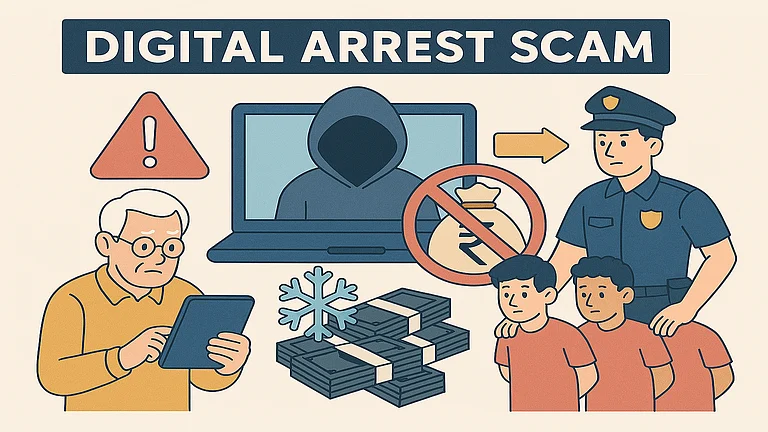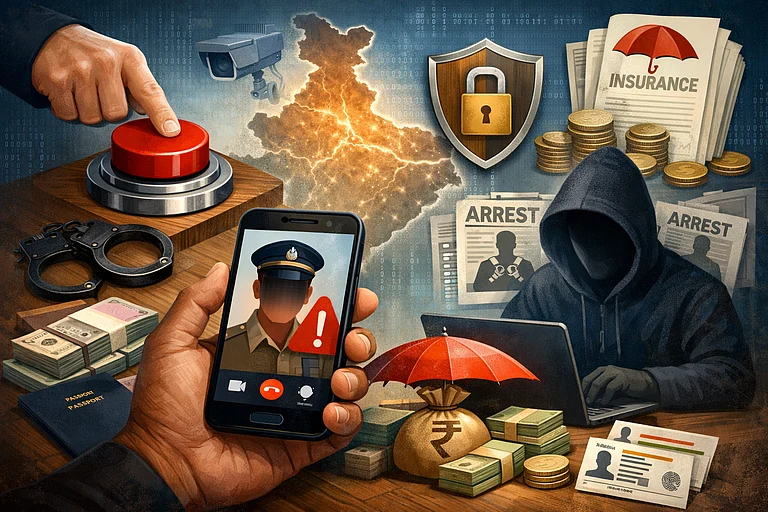Digital arrest fraud has become a significant issue in an era when technology makes illegal behavior easier as well as more convenient. In order to extort money and personal information from unaware people the scammers use digital platforms to pose as law enforcement officers.
What Is Digital Arrest Fraud?
Digital arrest fraud is a type of cybercrime where scammers impersonate officials from law enforcement agencies such as the police, CBI, or the Reserve Bank of India (RBI). They frequently use SMS, video conversations or phone calls to reach victims and falsely accuse them of major crimes like tax evasion or money laundering. These scammers influence their victims into sending money or leaking private information by instilling a sense of terror.
Prime Minister Narendra Modi recently discussed the alarming rise in digital arrest scams on an episode of Mann Ki Baat pointing out that Indians lost more than Rs 120.3 crore in the first quarter of 2024. Modi underlined the value of alertness and coordinated preventive actions. Union Home Minister Amit Shah also took to X (formerly Twitter) to highlight the importance of being cautious, making it clear that no legitimate official investigation is conducted via video or phone calls.
How to Identify Digital Arrest Fraud?
1. Unexpected Calls: Stay aware of unsolicited calls claiming to be from the police or the government, especially if you've never interacted with them before.
2. High-Pressure Tactics: It is most certainly a scam if you are being pressured to provide personal information or pay to avoid getting arrested. It is never acceptable for authorized authorities to use this kind of pressure.
3. Threats of Immediate Arrest: Many fraudsters will threaten you with immediate arrest if you don’t comply. Be aware that genuine authorities do not use fear tactics to compel compliance.
4. Vague Allegations: It's an alarming sign if the caller gives evasive justifications for the inquiry or allegations.
5. Unusual Payment Methods: Be skeptical of any requests for payment via unconventional methods such as gift cards or cryptocurrency. Legitimate fines are typically processed through formal channels.
How to Stay Safe from Digital Arrest Fraud?
1. Confirm Caller Identity: When you receive a suspicious call, Hang up right away then verify the caller’s identity by calling back with official contact numbers from trusted sources.
2. Don't Share Personal Info: If you are doubtful of the caller's identity, do not disclose any sensitive information over the phone.
3. Stay Calm: Maintain your composure and avoid letting terror cloud your judgment. Fear is a common tool used by scammers to pressure you into making snap judgments, so consider the circumstances carefully before acting.
4. Report Suspicious Activity: Notify the local police or cyber crime teams right away if you think you are being targeted. Contact the helpdesk at 1930 or go to cybercrime.gov.in.
5. Stay Informed: Ensure to be updated on the latest fraud techniques and strategies to recognize and avoid these dangers.














